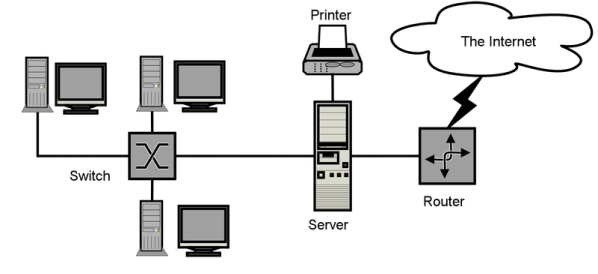 10 Terms
10 TermsHome > Terms > Armenian (HY) > համեմատական առավելություն
համեմատական առավելություն
Paul Samuelson, one of the 20th century’s greatest economists, once remarked that the principle of comparative advantage was the only big idea that economics had produced that was both true and surprising. It is also one of the oldest theories in economics, usually ascribed to David Ricardo. The theory underpins the economic case for free trade. But it is often misunderstood or misrepresented by opponents of free trade. It shows how countries can gain from trading with each other even if one of them is more efficient – it has an absolute advantage – in every sort of economic activity. Comparative advantage is about identifying which activities a country (or firm or individual) is most efficient at doing. To see how this theory works imagine two countries, Alpha and Omega. Each country has 1,000 workers and can make two goods, computers and cars. Alpha’s economy is far more productive than Omega’s. To make a car, Alpha needs two workers, compared with Omega’s four. To make a computer, Alpha uses 10 workers, compared with Omega’s 100. If there is no trade, and in each country half the workers are in each industry, Alpha produces 250 cars and 50 computers and Omega produces 125 cars and 5 computers. What if the two countries specialize? Although Alpha makes both cars and computers more efficiently than Omega (it has an absolute advantage), it has a bigger edge in computer making. So it now devotes most of its resources to that industry, employing 700 workers to make computers and only 300 to make cars. This raises computer output to 70 and cuts car production to 150. Omega switches entirely to cars, turning out 250. World output of both goods has risen. Both countries can consume more of both if they trade, but at what price? Neither will want to import what it could make more cheaply at home. So Alpha will want at least 5 cars per computer, and Omega will not give up more than 25 cars per computer. Suppose the terms of trade are fixed at 12 cars per computer and 120 cars are exchanged for 10 computers. Then Alpha ends up with 270 cars and 60 computers, and Omega with 130 cars and 10 computers. Both are better off than they would be if they did not trade. This is true even though Alpha has an absolute advantage in making both computers and cars. The reason is that each country has a different comparative advantage. Alpha’s edge is greater in computers than in cars. Omega, although a costlier producer in both industries, is a less expensive maker of cars. If each country specializes in products in which it has a comparative advantage, both will gain from trade. In essence, the theory of comparative advantage says that it pays countries to trade because they are different. It is impossible for a country to have no comparative advantage in anything. It may be the least efficient at everything, but it will still have a comparative advantage in the industry in which it is relatively least bad. There is no reason to assume that a country’s comparative advantage will be static. If a country does what it has a comparative advantage in and sees its income grow as a result, it can afford better education and infrastructure. These, in turn, may give it a comparative advantage in other economic activities in future.
- Part of Speech: noun
- Synonym(s):
- Blossary:
- Industry/Domain: Economy
- Category: Economics
- Company: The Economist
- Product:
- Acronym-Abbreviation:
Other Languages:
Member comments
Terms in the News
Featured Terms
համակարգիչների ցանց
համակարգչային սարքավորումների փոխկապակցված համակարգ,որը տալիս է տեղեկության համօգտագործման հնարավորություն:
Contributor
Featured blossaries
dejanak
0
Terms
9
Blossaries
1
Followers
10 Most Famous Streets in the World
 10 Terms
10 Termsstanley soerianto
0
Terms
107
Blossaries
6
Followers
The 10 Best Shopping Malls In Jakarta
 10 Terms
10 Terms
Browers Terms By Category
- World history(1480)
- Israeli history(1427)
- American history(1149)
- Medieval(467)
- Nazi Germany(442)
- Egyptian history(242)
History(6037) Terms
- Capacitors(290)
- Resistors(152)
- Switches(102)
- LCD Panels(47)
- Power sources(7)
- Connectors(7)
Electronic components(619) Terms
- Health insurance(1657)
- Medicare & Medicaid(969)
- Life insurance(359)
- General insurance(50)
- Commercial insurance(4)
- Travel insurance(1)
Insurance(3040) Terms
- Clock(712)
- Calendar(26)
Chronometry(738) Terms
- Film titles(41)
- Film studies(26)
- Filmmaking(17)
- Film types(13)



